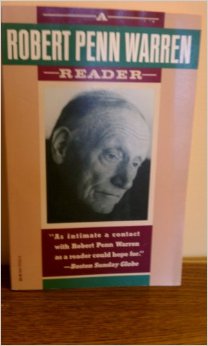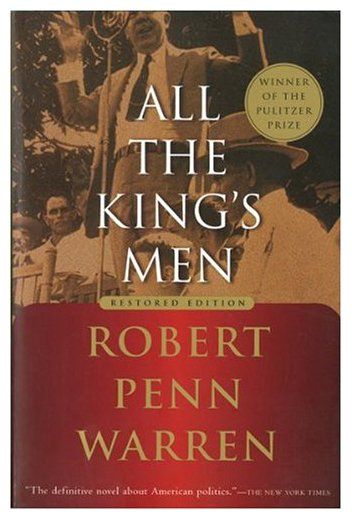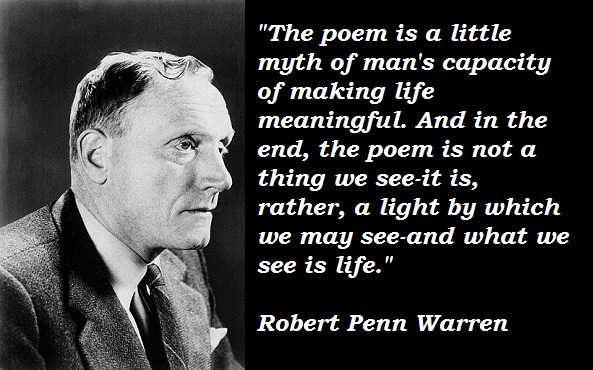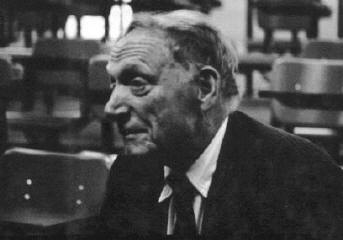The volume offers a selection of this prolific writer’s oeuvre, poems, essays, plays, short stories, excerpts from his novels, forwards and prefaces he wrote for the books of others.

Warren (1905-1989) wrote one of the best novels ever, especially for political junkies, ‘All the King’s Men’ (1947); three or more times butchered by Hollywood, it remains evergreen despite the assaults by the Tinsel Town pigmies.

The opening of that novel strikes an hypnotic chord in which the rest of the story unfolds. Marvellous.
Most of the items in this collection were composed between 1940 and 1965. He was Poet Laureate at the Library of Congress in the 1970s and his greatest fame lies in that world, poetry, amply vindicated by the poems included in this volume, each a small study of nature or humanity.

Like many others of the South his greatest challenge was the obvious one of slavery past and racism present. As an undergraduate he defended segregation, as did his professors and peers at Vanderbilt University, including that other remarkable Southern poet, Allen Tate, but Warren grew out of it and quickly, unlike Tate. Warren’s short monograph ‘Segregation’ (1956), included between these covers in its entirety, offers his personal bildungsroman along with penetrating insights into the manifold evils segregation spawned. Though this account lacks the hellfire and brimstone of his comrade William Faulkner’s many denunciations of the racism, being more cerebral and measured, yet it strikes hard, sure, and deep. His reference to the remark attributed to a Southern plantation wife says it all, but so succinctly and so swiftly that I had to read it twice to get it. ‘Mr. Lincoln freed me of slavery and I thank him for it.’ (Either you get it or you don’t.)
Among the pleasures in this volume is a short but layered appreciation of the nineteen novels of William Faulkner. Faulkner’s many failures and weaknesses, on Warren’s telling, were essential to Faulkner’s astonishing successes and strengths. The man was whole and so is his work, and that is how we must take it.
The same themes run through his commissioned monograph ‘The Legacy of the Civil War’ (1961), included here. There is too much in it to summarise but to this reader the most striking passage is when Warren asks readers to imagine Robert E. Lee shaking hands and congratulating the strutting Southern governors of the 1950s and 1960s barring children from schools, encouraging baying crowds of Bible-grasping gorgons to shout abuse at girl scouts, licensing hissing mobs to burn churches, sanctioning lynch parties, ignoring rape and pillage for sport, and praising masked men hiding in the dark.
A close examination of pictures from the March on Washington in 1963 will show Warren there on the steps of the Lincoln Memorial come to give his own thanks.
He received three Pulitzer Prizes for his work, living most of his latter years in New England, no longer welcome in his homeland, and it shows in the poetry.
 In a classroom at Yale University where he taught for years.
In a classroom at Yale University where he taught for years.
The wonders of nature and humanity remain many and varied, but the sense of loss and disconnection is but palpable.
A callow undergraduate, I heard him recite some of his poems and the memory has since remained bright. There are some short excerpts on You_Tube.
Skip to content
